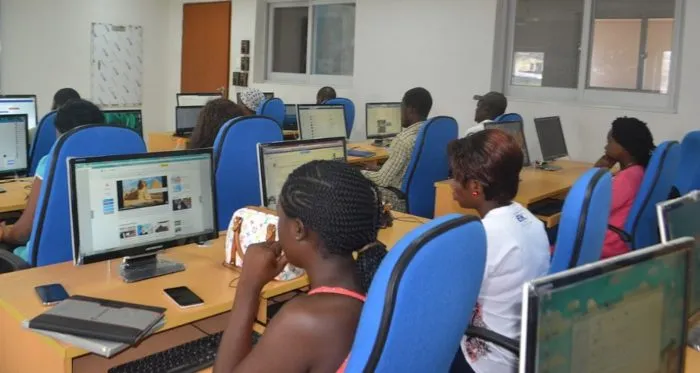African women in ICT. Photo by Devdiscourse
Caribou Digital, a research and advisory firm, says the gender gap in digital skills affects women’s participation in the digital economy.
In its report, ‘Youth in Digital Africa: Our Connections. Our Choices. Our Future’, the research firm said the gender gap in digital skills has various implications.
The report was conducted in partnership with the Mastercard Foundation.
Caribou Digital said the report is a collection of “powerful” personal narratives by young people across the continent, looking at the challenges and benefits of technology in the digital age.
Advertisement
According to the report, the gender gap affects women’s ability to access information, educational resources, and employment opportunities available online.
The firm said the issue also hinders their participation in the digital economy, entrepreneurship, and decision-making processes related to technology.
“For every 100 male young people who have digital skills, only 65 female young people do, a 2023 UNICEF report of 32 countries found,” the report said.
Advertisement
“According to UNICEF, young adults in low- and middle-income countries need to master digital skills, starting from the most basic ones, such as copying a file or adding an attachment to an email, to more complex skills, such as performing calculations in a spreadsheet or preparing electronic presentations, to better prepare them for the increasingly digital world of work.”
As a remedy, Caribou Digital recommended integrating digital literacy into school curricula from early childhood, ensuring that future generations are prepared for success in the digital age.
The firm also urged the government to collaborate with international technology companies to support training initiatives such as tech hubs, e-libraries, and skill development centres for youth — especially in rural and low-income urban areas.
Grace Natabaalo, insights and research manager at Caribou Digital, said young women are denied their rights by family members, such as husbands and parents, who discourage them from using mobile phones or being on social media due to unsubstantiated concerns.
Advertisement
She said online spaces frequently reflect and amplify harmful gender norms, which restrict women’s ability to fully utilise the internet for their benefit.
“For example, young women say are usually seen through a sexual lens. They face sexual harassment, body shaming, and inappropriate requests from clients in comments sections or via direct messages,” Natabaalo said.
The research manager said these women want the African governments to hold social media companies accountable for online safety and advocate for public awareness campaigns to promote respectful online communication.
According to Natabaalo, young women take pride in earning their own income independently of family or spouses and feel more empowered to pursue additional business or work-related interests.
Advertisement
This, she said, translates into greater economic benefits for any country.
Advertisement









